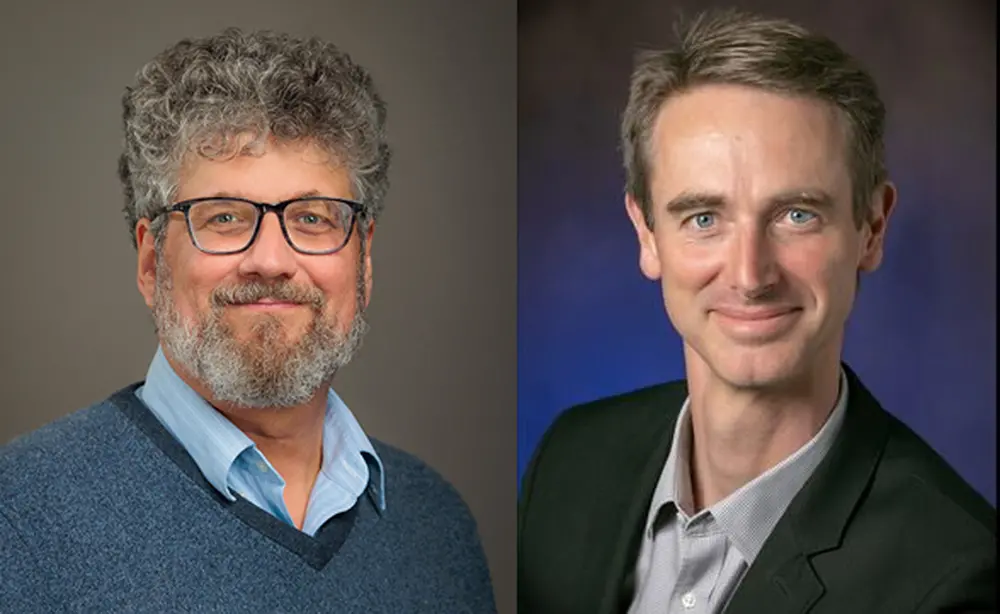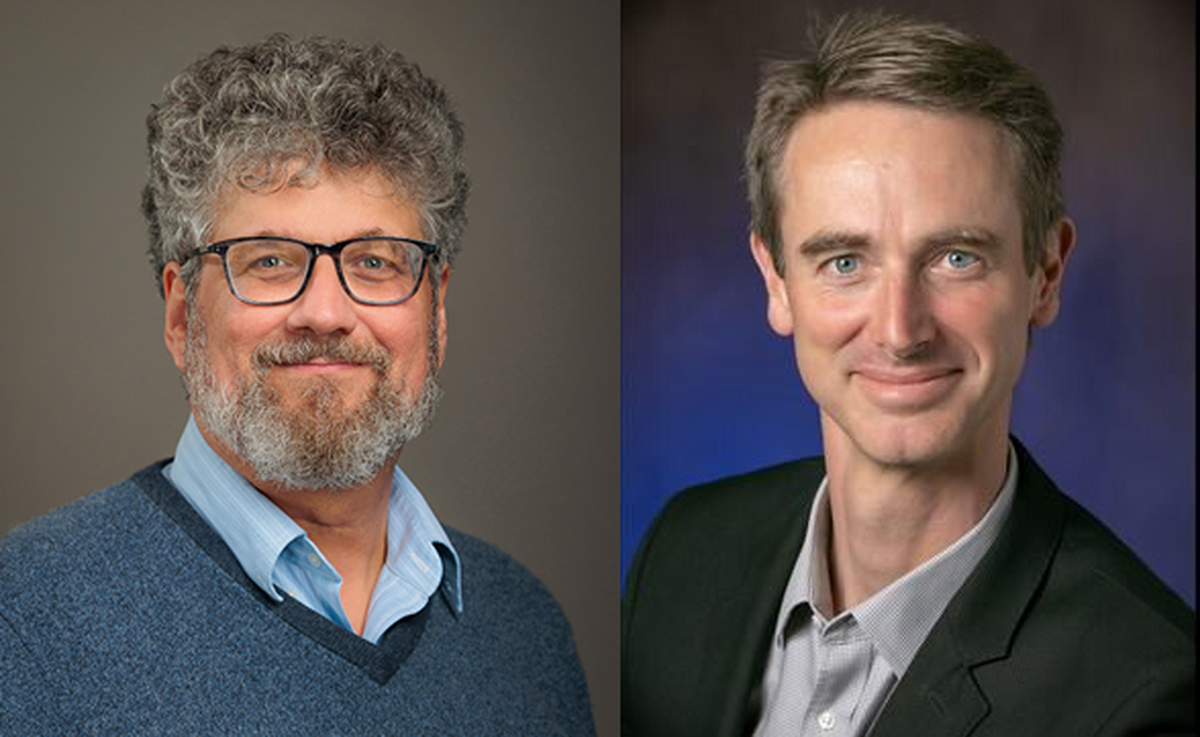

Four faculty members from the University of Illinois Urbana-Champaign have been newly elected as members of the American Academy of Arts and Sciences, one of the oldest honorary societies in the United States. Materials science professor Paul Braun, history professor Antoinette Burton, physics professor Aida El-Khadra and chemistry professor Jonathan Sweedler are among the nearly 250 inductees for 2025.
Founded in 1780, the academy recognizes scientists, artists, scholars and leaders who have distinguished themselves in the public, private and nonprofit sectors. The new members will be inducted at an October ceremony in Cambridge, Massachusetts. The complete list of members elected to the academy is available on its website.
Sweedler specializes in analytical chemistry and neurochemistry to understand cell-to-cell signaling pathways involved with learning, behavior and memory. He is the James R. Eiszner Family Endowed Chair in Chemistry at Illinois and also the editor-in-chief of the nearly century-old journal Analytical Chemistry. Sweedler’s research team is developing mass imaging approaches that allow thousands of individual cells to be analyzed — measurement capabilities that are wholly unique and not currently available elsewhere. He is a fellow of the American Chemical Society and was honored with the Visionary Award from the American Diabetes Association.
Braun is a Grainger Distinguished Chair of Engineering, professor of materials science and engineering, the director of the Materials Research Laboratory at Illinois and professor in chemistry. His research group synthesizes and studies materials with unique optical, electrochemical, thermal, mechanical and transport properties — properties which often emerge from the carefully crafted 3D structure of these materials. Braun’s recent research topics include new materials for next generation rechargeable batteries, optical communication and the control of transport of heat and matter. He is also a fellow of the National Academy of Inventors, the American Association for the Advancement of Science and the Materials Research Society.
Burton, director of the Humanities Research Institute at Illinois, is a historian of 19th and 20th century Britain and its empire with a special focus on colonial India. Women, feminism and gender history are also central topics of her research and writing, including her most recent book, “Gender History: A Very Short Introduction,” which gives an overview of gender history as a category of historical analysis since the 1970s and details how the field has changed interpretations of the histories of slavery, capitalism, migration and empire. Burton holds the Maybelle Leland Swanlund Endowed Chair. She also serves as the principal investigator of Humanities Without Walls, a multi-institutional consortium for interdisciplinary humanities research sponsored by the Mellon Foundation, and is chair of the faculty board of the University of Illinois Press.
El-Khadra is a theoretical particle physicist working on the development of lattice field theory as a precision tool to quantify the nonperturbative effects of quantum chromodynamics, also known as the strong interactions. This work is needed for the interpretation of observations in high-energy experiments. Her lattice QCD research includes a broad program of calculations that enable precision tests of the standard model of particle physics or determinations of its fundamental parameters. A recent focus of her lattice QCD research is on the hadronic corrections to the anomalous magnetic moment of the muon, and she serves as the chair of the Muon g-2 Theory Initiative. El-Khadra is also using quantum simulations to study novel quantum field theories, a new direction in her broad body of research. She is Simons Foundation Fellow in Theoretical Physics, a fellow for the American Association for the Advancement of Science and of the American Physical Society and was the 2024 Schrödinger Visiting Professor at ETH Zürich, a Distinguished Scholar of Fermilab and a Sloan Foundation Fellow.